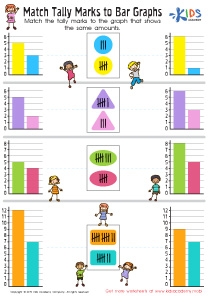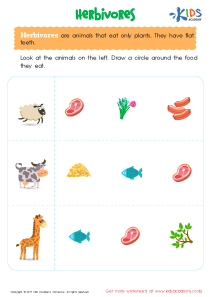English Language Arts Lessons | Phonological Awareness, Grade 2
0 results
Introduce your Grade 2 students to the essential Phonological Awareness Lessons that will pave the way for their reading success. Our interactive worksheets and educational videos are designed to boost their phonetic and language awareness for the optimal language foundation. This course covers topics like syllable segmentation, phoneme deletion, and sound substitution, enhancing their reading fluency, accuracy, and comprehension. Assess their progress with our quizzes and ensure that they are on the right track. These Phonological Awareness Lessons are tailored to meet the needs of students, whether in the classroom or at home, as they build the necessary skills to become confident and proficient readers.
Phonological Awareness Lessons for children in Grade 2 are an essential part of their studies. Phonological Awareness, also known as sound or phonemic awareness, is the ability to recognize and manipulate the sound structure of words in spoken language. This includes recognizing rhyming words, identifying syllables, and segmenting words into phonemes (individual sounds). Children who have strong phonological awareness skills have a solid foundation for learning to read and write.
The Phonological Awareness Lessons we offer to Grade 2 students are designed to develop their phonological awareness skills through interactive worksheets, educational videos, and assessment quizzes. These lessons help to build a child's understanding of the importance of phonics, which lays the foundation for reading and writing success.
One of the key benefits of Phonological Awareness Lessons is that they improve a child's ability to read and spell. Phonetic awareness lays the foundation for these critical language skills, as it helps children identify and manipulate the various sounds that make up words. When children can break down words into individual sounds, they are better equipped to recognize the word when they hear it spoken, which enhances their listening comprehension. It also helps with spelling as they can segment words into their component sounds and spell them correctly.
Phonological Awareness Lessons are also essential for developing a child's vocabulary. As children practice rhyming and word segmentation, they expand their knowledge of language. This, in turn, helps them to better understand and use new vocabulary words as they encounter them.
Another significant benefit of Phonological Awareness Lessons is that they help develop a child's ability to communicate effectively. Students with excellent phonological awareness skills have an easier time expressing themselves through both spoken and written language. They can use their understanding of the structure of words to formulate coherent sentences, which helps them communicate their thoughts and ideas more efficiently.
Furthermore, our Phonological Awareness Lessons are also beneficial for children with learning disabilities. Many learning disabilities are rooted in difficulties with language, including phonetics and comprehension. By providing strong foundational skills in phonemic awareness, we can better equip children with learning disabilities to overcome their challenges and access the same opportunities as their peers.
In conclusion, Phonological Awareness Lessons have numerous benefits for children in Grade 2 and beyond. These lessons improve a child's ability to read, write, communicate, and expand their vocabulary. Additionally, they are beneficial for children with learning disabilities.



















